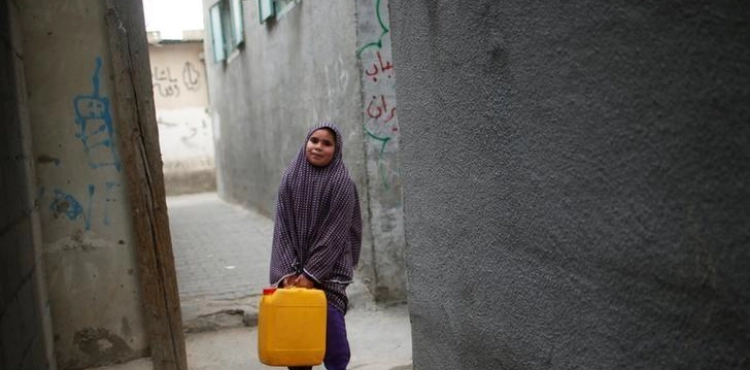The Water Authority in the Gaza Strip said that not using rain water to feed the coastal aquifer in the Gaza Strip because of climate change increases the shortage of water sources, which means an increase in the water deficit in the water budget.
The Gaza Water Authority said in a press statement on the occasion of the celebration of World Water Day, that this increases the decrease in the levels of groundwater and thus an increase in the tyranny of sea water, which means an increase in the deterioration of the quality of groundwater through an increase in its salinity, regardless of the party causing the rise in temperature Planet Earth, and its impacts on climate change and its negative effects on the quantity and quality of water resources.
She emphasized the importance of adapting to this global phenomenon, and reducing its impacts by maximizing rainwater harvesting.
She stated that this case can be dropped on the coastal underground reservoir in the Gaza Strip, where the groundwater level is relatively close to the surface of the earth as the Al-Mawasi area in the western region of Khan Yunis and Rafah governorates as well as the Al-Bassa area in the western region of the central governorate and the inevitable result of this increase in the concentration of salts in these waters Subterranean.
The Water Authority stated that the increase in the intensity of rain and the decrease in the rainy period of time would reduce the utilization of rain water to feed the underground reservoir, which would lead to a shortage of water sources available for different water uses.
She pointed out that climate change would bring extreme weather events such as hurricanes, severe rain and a decrease in the period of rainy time throughout the year, which means an increase in surface runoff and flooding, as happened in Hurricane "Alexa" six years ago in the Gaza Strip, where more than 80 fell Percent of the general rate of rain water within three days, which is the time period for this decrease.
She said: "The Israeli occupation remains the greatest non-environmental threat to the Palestinians in the occupied Palestinian territory." , Thus increasing their vulnerability to climate change.
"The occupation leads to policies that cannot be adapted, which weaken the readiness of the Palestinians to withstand the threat of climate change. In return, Israel has a good ability to adapt to the effects of climate change and therefore it is less vulnerable to vulnerability and harm."
She demanded the importance of rationalizing the uses of water by moving away from all behaviors that would waste water in addition to changing stereotypes and orientation to crops and crops that would reduce water consumption, and irrigation methods that reduce steam quantities should be used.
She called for the provision of new water sources through wastewater treatment, with a view to reuse in agriculture after adaptation and the availability of conditions for that, noting that this is being applied in the Gaza Strip through projects implemented by the Water Authority that include the construction of wastewater treatment facilities and the establishment of The distribution networks of treated water to farmers with the aim of legalizing the extraction of groundwater, and this is already happening in the eastern region of the North Governorate and the southwestern region of the Rafah Governorate.












